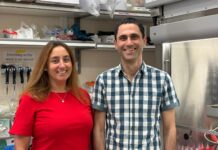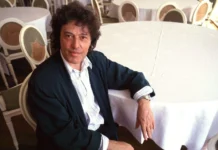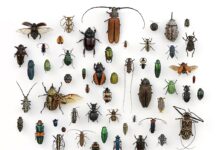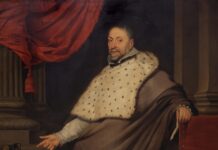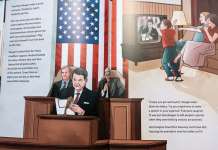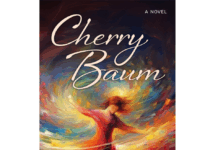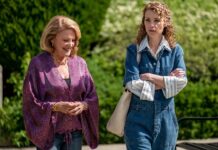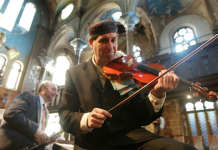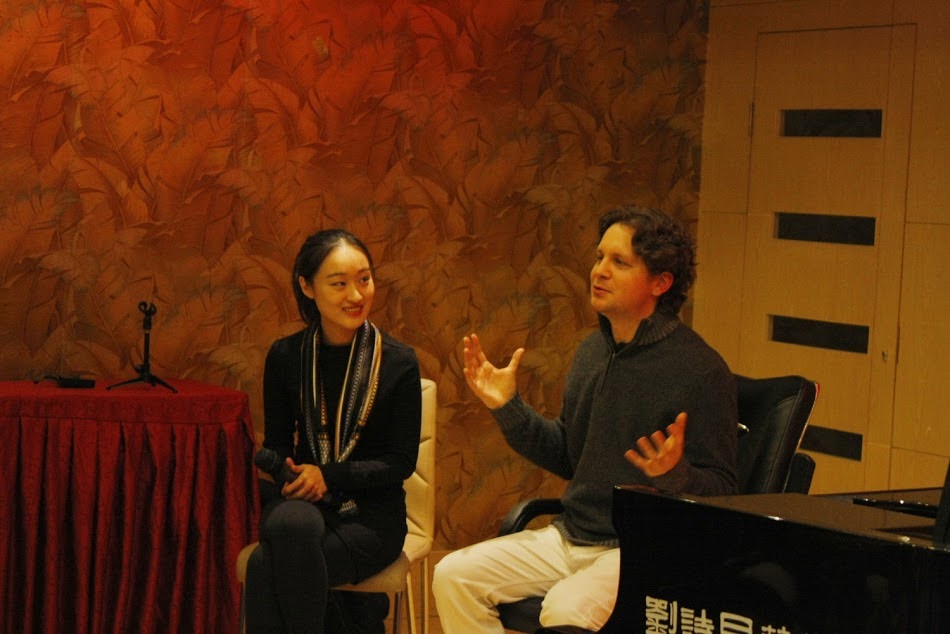Polish-born pianist, Daniel Wnukowski, performed at two venues during his recent visit to San Diego County. On Sunday afternoon, November 13, he gave a recital of works by Mozart, Chopin and Schumann in the Solana Salons series at the home of pianist and series host, Monique Kunewalder.
His Mozart was crisp and joyful, with beautifully shaped phrases and precise technique. The Chopin Fantasie Impromptu-I’m Always Chasing Rainbows theme was as beautifully rendered as one might ever hear. Schumann’s Carnival, with its 21 short movements, depicting various individuals in the carnival leading to Lent, was rendered with exciting tempo and dynamic contrasts, giving each piece its unique character.
On Wednesday evening, November 16, Vnukowski was joined by Professor Emeritus, UCSD Theater and Dance, Eva Barnes, narrator, in a multimedia program at the Lawrence Family JCC’s Garfield Theatre. It was presented by the San Diego Center for Jewish Culture and We Are the Tree of Life.
It fulfilled the mission of We Are the Tree of Life as expressed in an article in the San Diego Jewish World in early 2020, when that initiative was first being formulated: to bring to life the music, art and literature created during the Holocaust, and to honor our Holocaust survivors. Although several programs were planned for Fall of 2020, they were put on hold because of the pandemic.
This program, with two outstanding performers and the partnership of the Lipinsky Family San Diego Jewish Arts Festival, Radio Canada, The New Classical FM 96.3 and UCSD Theater and Dance, fulfilled the goals of We Are the Tree of Life.
During the course of the program, we heard selections by four different Holocaust-era omposers. The first was a Mazurka in F Minor, by Wladyslaw Szpilman, a lively Polish dance in the romantic style, beautifully interpreted by Vnukowski. It was followed by excerpts from Szpilman’s diary, read by Barnes.
Szpilman, a talented pianist, was returning from a concert tour when he was about to cross the border back into Poland and noticed the headline on a news stand that Hitler had just marched into Poland. Szpilman was able to turn back to neutral Switzerland, where he managed to survive the war.
Three Viennese-born composers, Walter Arlen, Joseph Beer, and Hermann Leopoldi were presented. Arlen’s piece, Masks, was an innovative-sounding jest, deftly articulated by the talented pianist. Arlen, after immigrating to America, became a music critic for the Los Angeles Times.
Joseph Beer wrote the operetta, Stradella in Venedig, from which Barnes narrated the lyrics, Over Yonder in the Sunshine.
The last Holocaust composer performed was Roman Ryterband, whose dance, Oberek was a lively conclusion. Ryterband was born in Lodz, Poland. When the bombs began to fall on Warsaw, he was in Nice, France and took the last train back to Geneva, where he was able to survive the Holocaust. After the war, he came to the U.S., settling finally in Palm Springs, where he did research of Native American culture.
During the multimedia program, entitled On Wings of Song, the gifted pianist incorporated Mendelssohn’s On Wings of Song and Song without Words, op. 67; Chopin’s Nocturne in C-sharp minor; Brahm’s Klavierstuecke, op. 117, No. 1; and Schubert’s Moments Musicaux, No. 2.
Slides of the Holocaust composers were projected behind the pianist, giving the audience a glimpse of what these people looked like.

